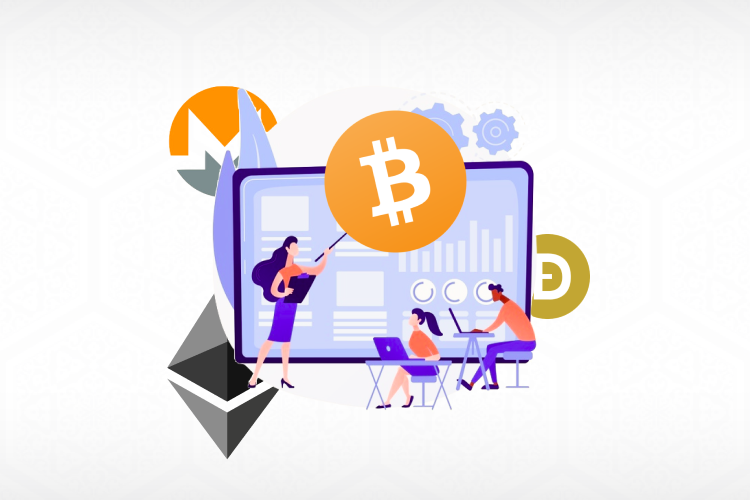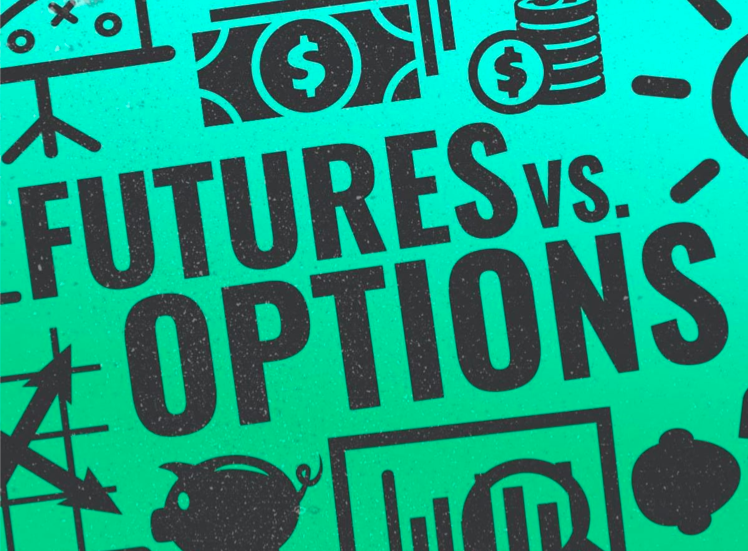
Cryptocurrency Options and Futures : An Intro
Crypto derivatives are secondary contracts or financial instruments whose value is determined by the underlying asset. For example, BTC, ETH, or other inclusive. This article aims to cover and explain two essential types of derivatives: crypto options and crypto futures to use when you download MetaTrader 5 for PC.
Cast a swift glance at what these two notions are and how they function in trading. It will let you shape your trading strategy in such a way that it will bring you more financial benefits out of trading.
Cryptocurrency options (aka crypto options) are derivative contracts that follow the price of Bitcoin, except that they do not have to be settled on their expiration date.
They are called options because they give traders the ability or the right to buy or sell at predetermined prices on specific dates in the future.
Cryptocurrency futures represent a contract or agreement between two parties to buy and sell BTC (or any other cryptocurrency) at a given price on a specific date in the future (hence the name).
Nevertheless, neither party is required to own the underlying crypto asset. Instead, they are simply settled by contract in US dollars or using stable coins such as USDT.
What sets futures contracts apart from other derivatives is the specific settlement date.

How to Trade Options and Futures
Trading Crypto Options
Now let's move to how you can start trading crypto options. It's known that option basics are call and put. With options — when trading at Exness — you don't go long or short. Instead, you have call and put options.
A call option gives its owner the right to buy bitcoin at an agreed price after the contract's expiration.
Conversely, a put option gives its owner the right to sell. In any case, the owner decides whether to exercise his right or not.
For example, if you buy a call option with BTC for $ 40,000, which expires in a week, that means that in a week, regardless of the price, you have the option to buy one BTC for $ 40,000 (the price at which you've got the opportunity to buy an asset in the future is called the strike price).
If the price of BTC rises to $ 50,000, you will certainly exercise your right as you can buy BTC at a lower price and then sell it for a $ 10,000 profit.
If the price fell below $ 10,000, you could simply let the option expire as buying BTC at the strike price would result in a loss.
Trading Crypto Futures
Let's exemplify how one can start trading crypto futures. For example, let's consider trading BTC at Exness.
One of the first things a trader will have to decide on is the duration of the contract. The exchanges offer several options such as weekly, bi-weekly, quarterly, etc.
Let's say you want to trade weekly BTC contracts, and each contract is worth $ 1 when the price is 1 BTC = $ 50,000. This means that you need 50,000 contracts to open a position worth 1 BTC.
At this stage, the trader can open a long position (a bet on a price increase) or a short position (a bet on a price decline). Whichever direction you choose, when you open a position, the exchange will, in fact, match you with someone walking in the opposite direction.
One week later, when the contracts are due to be settled, one of the traders will have to pay the other.
If you decide to open a short position and the price drops after a week, you will make a profit. If the price has risen, you will suffer a loss.
Crypto Options: Key Benefits and Differences
A crypto option contract providing the right to purchase an asset in the future can be beneficial to a trader for several reasons:
● Limited risk. The holder's loss is equal to the premium. At the same time, the maximum profitability is not limited and depends only on the final price of the asset.
● Resistant to short-term volatility. It doesn't matter how much the cryptocurrency quotes change during the day. To make money, you need to correctly predict the asset's price at the time of expiration.
● The ability to apply leverage. Margin derivatives are available on many exchanges.
The main difference between options and other derivatives is the buyer's right to withdraw from the trade at expiration.
Futures and perpetual contracts provide for the obligation of the parties to exchange cryptocurrency at a predetermined rate.
When the agreement expires, the seller sends bitcoins to the buyer and receives fiat or other assets in return. Options give holders a lot of freedom:
● If the coin rate has changed in a direction favorable to the owner of the derivative at the time of expiration, he can exercise his right to buy the asset at a predetermined price. For example, if a trader has purchased an option for the growth of bitcoin quotes, and BTC goes up in price, the holder will take the cryptocurrency.
● If the asset price has changed in the opposite direction, the deal is canceled. The option expires without the transfer of cryptocurrency.
It may seem that such conditions are unfavorable for the second party. But an essential difference between an option and other derivatives is that when a contract is concluded, the buyer pays the seller a fee (premium). This money cannot be returned.
Crypto Futures: Key Benefits and Differences
On trading platforms, you can find contracts not only for bitcoin. They showcase many other products based on alternative cryptocurrencies, including:
● Ethereum
● Litecoin
● Bitcoin Cash
● XRP, and other popular coins.
This gives users more flexibility and allows for more complex strategies.
Another significant advantage, which has already been mentioned, is that you can start trading with much less start-up capital than with institutional services.
You don't need to be a famous and wealthy trader to open an account.
In other words, this trading option speaks of the possibility of access to the market and financial instruments for ordinary people, not just for Wall Street inhabitants.
When it comes to differences between options and futures, a pre-agreed price and term apply. But an option is an unequal contract. The obligation is borne by only one party, i.e. the seller of the option. And the buyer of the option has the right to exercise or not to exercise the contract. It means that unequal rights are the essence of an option and the main difference from futures.
Summary
Trading crypto derivatives offers several growth prospects for a good trader.
The trick is to develop a strategy before getting started with crypto derivatives.
A trader should analyze and understand the risks associated with derivatives trading before starting a trade. One thing is for sure the cryptocurrency derivatives market is not something newbies should start with.
In any case, the best way to trade futures and options is to use a reliable platform. Exness is one of the greatest platforms to perform crypto trading easily and transparently.
Be sure to join Exness to integrate into the global industry of trading crypto and earn more and more!















